Indian Summers: Inqilab Zindibad Edition

Michael J. Altman and Ilyse Morgenstein Fuerst This is our first in a series of discussions about the PBS Masterpiece series Indian Summers airing Sunday nights at 8 pm EST on PBS. Sacred Matter’s managing editor Michael J. Altman and Ilyse Morgenstein Fuerst, assistant professor of religious studies at the University of Vermont, will offer their reviews of the series as it airs in the United States. NOTE: THERE ARE SPOILERS
Welcome to the Dark Side
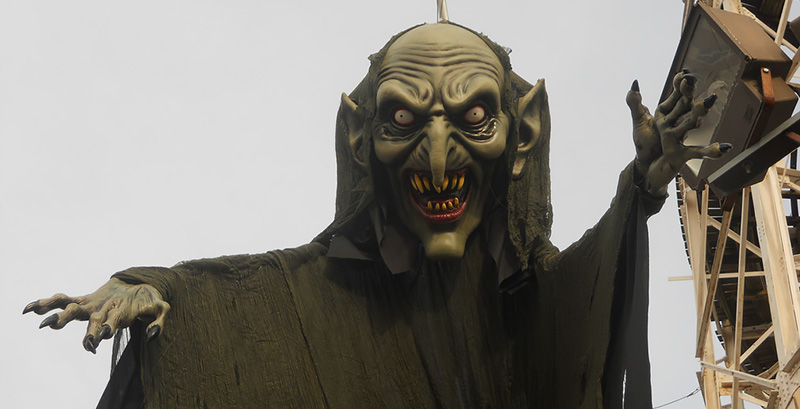
Kelly J. Baker
In my first year of graduate school, I lent my middle sister all of my Harry Potter books. I loved the books that I had read so far. I imagined that she might too. She’s almost six years younger than me and at the time lived at home with our parents. When I later asked whether she enjoyed the books, she quickly explained that our mom had moved the books out of the house to the shed, yards and yards away. More intrigued than surprised, I asked why. Harry Potter was apparently a problem.
Theater as Religion: Luis Alfaro’s “Mojada” at The Getty

Luís León At a time when the bombastic politics of Donald Trump are dehumanizing and vilifying Mexican immigrants, Luis Alfaro’s new play gives audiences a much-needed human perspective on migrants in Los Angeles. Alfaro brings into sharp relief the tragedies undocumented workers face, and the sacrifices they make in order to work in the United States.
Corporate Profit Through Buddhist Kitsch
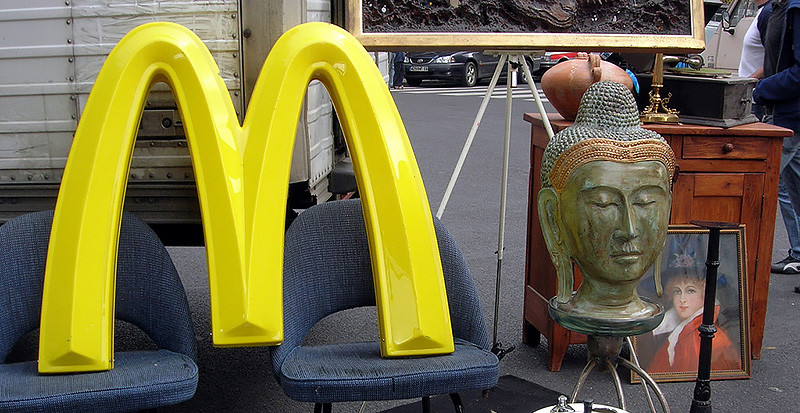
Jolyon Baraka Thomas My wife and I stepped into a home furnishings store in Arcata, California, this past May. We weren’t necessarily looking to buy much, but with an upcoming move to Philadelphia we were checking out furniture styles and seeking decoration ideas for our new home. We were on vacation and needed a bit of a break between brunch and a hike, so a little idle consumerism seemed like an appropriate midday activity.
Confusing Religion in a Nutshell
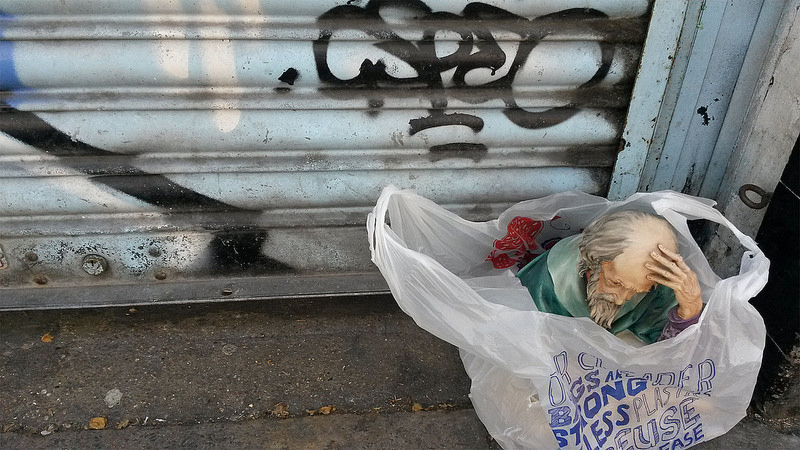
Gary Laderman When I was a young, idealistic, newly-minted PhD, moving from the University of California, Santa Barbara, to my first and only job at Emory University in Atlanta, Georgia, I had one primary, driving goal in teaching: to clarify for students the role of religion in society. Now that I’m older, wiser, and tenured, a different motivation is driving my pedagogy: my ultimate goal these days is to confuse the hell out of undergrads.
When God Won’t Let You Do the Assignment
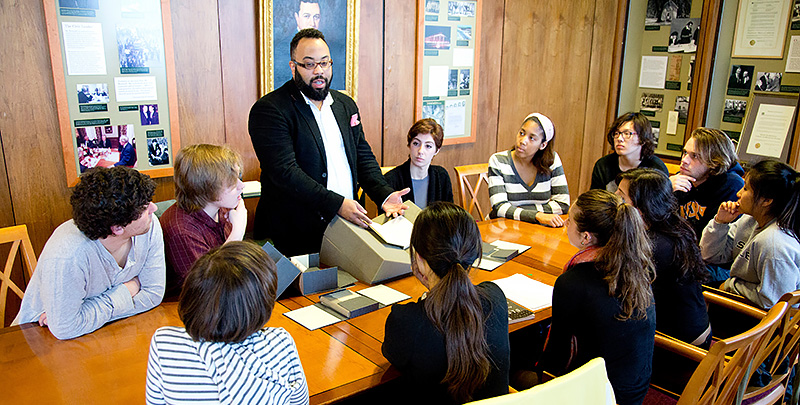
Briallen Hopper It’s back-to-school season. Pumpkin lattes are here, school supplies are on sale, and thousands of students are showing up at college and trying to figure out what religion means in their lives. For some students, figuring out faith in college will be a relatively straightforward process that might involve taking a cool-looking religion class, joining a religious student group, or blithely deciding to prioritize sleep over worship services.
Is Nothing Sacred? Notes from the International Association for the History of Religions
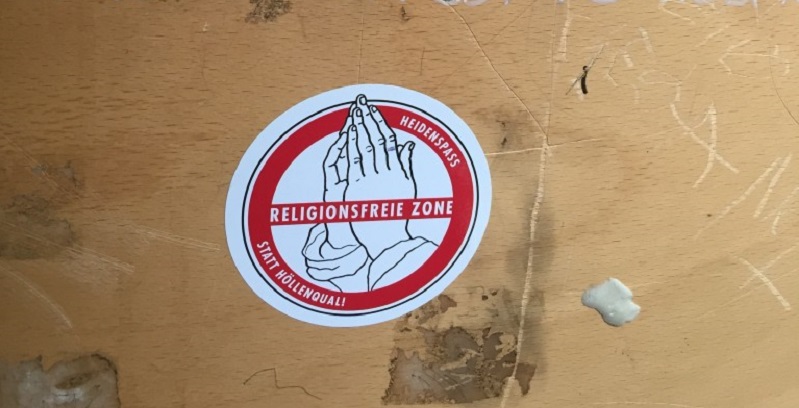
Brian Pennington A rare convergence of scholars of religion occurred recently: the World Congress of the International Association for the History of Religion (IAHR), which convenes only once every five years, took place in Erfurt, Germany, in August. This brainy and multilingual affair brought 1500 scholars from six continents together to present their research and confer on collaborative projects.
The Sacred and the Secular in the Vatican Museum

Louis A. Ruprecht Jr. There is more than one way to look at religion, and more than one place in which to find sacred energies alive and well today. These are neither surprising nor controversial contentions for readers of Sacred Matters. The central idea here is that the traditional notion of modern “secularization” does not capture the realities of the ever-shifting religious landscape in the contemporary United States (and in much of the modern world, for that matter).
There Be Monsters: A Warning
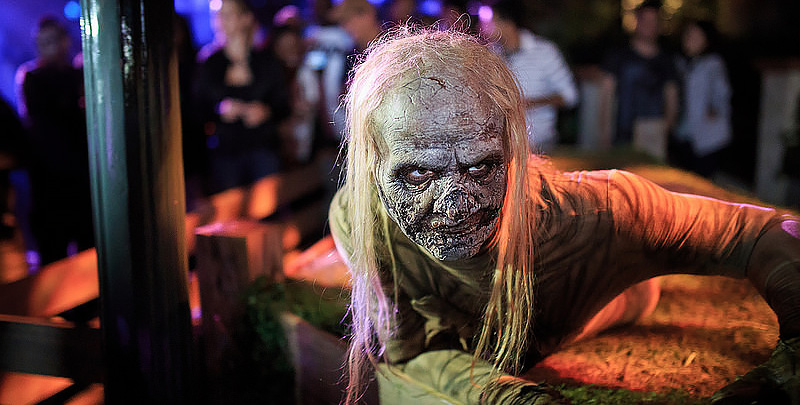
Kelly J. Baker I decided to begin a project on zombie apocalypses, in part because of The Walking Dead’s popularity but also because of burgeoning amount of zombie media, the books, films, products, television shows, memes, and apps that center on zombies. My decision also hinged on the uncritical embrace of zombies by fans, critics, friends, relatives, and my students.
Jewish Umpires and Baseball Chapel
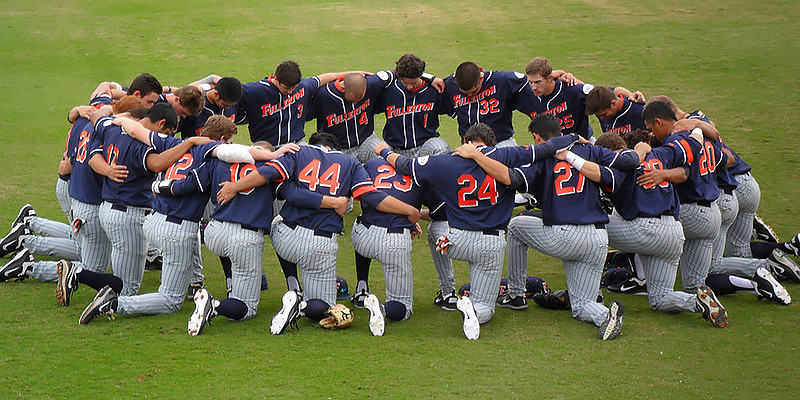
Rebecca T. Alpert On February 2, 2008, Murray Chass, a New York Times sports columnist, wrote an essay entitled, “Should a Clubhouse Be a Chapel?” He was writing in response to a phone call he received from Josh Miller, a minor league umpire who had recently been released by Major League Baseball. Baseball rules require that umpires who are not likely to be promoted to the majors serve no more than three years in AAA ball. While Miller was disappointed, he finally felt free to contact the press about a situation that had disturbed him deeply.
